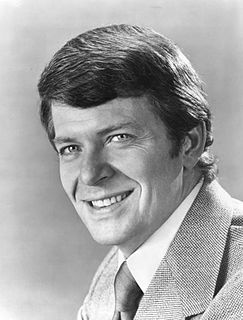A Quote by John Updike
Fiction is in danger of becoming a kind of poetry. Only other poets read it. Only other fiction writers care about it.
Related Quotes
I tend to like the way poets form communities. Writing can be lonely after all. Modern life can be lonely. Poets do seem to be more social than fiction writers. This could be because of poetry's roots in the oral tradition - poetry is read aloud and even performed. I'm just speculating, of course. At any rate, because poets form these groups, they learn from one another. That is one of the best things about being a poet.
When I taught at the University of Houston in the Creative Writing program we required the poets to take workshops in fiction writing and we required the fiction writers to take workshops in poetry. And the reason for that is because the fiction writers seemed to need to learn how to pay greater attention to language itself, to the way that language works.
In general, fiction is divided into 'literary fiction' and 'commercial fiction.' Nobody can definitively say what separates one from the other, but that doesn't stop everybody (including me) from trying. Your book probably will be perceived as one or the other, and that will affect how it is read, packaged and marketed.
Writing fiction is not a profession that leaves one well-disposed toward reading fiction. One starts out loving books and stories, and then one becomes jaded and increasingly hard to please. I read less and less fiction these days, finding the buzz and the joy I used to get from fiction in ever stranger works of non-fiction, or poetry.
It had also been my belief since I started writing fiction that science fiction is never really about the future. When science fiction is old, you can only read it as being pretty much about the moment in which it was written. But it seemed to me that the toolkit that science fiction had given me when I started working had become the toolkit of a kind of literary naturalism that could be applied to an inherently incredible present.
What writers of fantasy, science fiction, and much historical fiction do for a living is different from what writers of so-called literary or other kinds of fiction do. The name of the game in F/SF/HF is creating fictional worlds and then telling particular stories set in those worlds. If you're doing it right, then the reader, coming to the end of the story, will say, "Hey, wait a minute, there are so many other stories that could be told in this universe!" And that's how we get the sprawling, coherent fictional universes that fandom is all about.
I had a teacher once who said, "If you are going to write fiction, you should only read poetry." I have always been interested in the writers who care about their sentences and who really work on that level. I have always said that I hate writing, I love revision. So, the language is really important to me. And the comedy and the horror that come out of the language.
THE MAGIC AND THE DANGER OF FICTION IS THIS: it allows us to see through other eyes. It takes us to places we have never been, allows us to care about, worry about, laugh with, and cry for people who do not, outside of the story, exist. There are people who think that things that happen in fiction do not really happen. These people are wrong.
I would say that most of my books are contemporary realistic fiction... a couple, maybe three, fall into the 'historic fiction' category. Science fiction is not a favorite genre of mine, though I have greatly enjoyed some of the work of Ursula LeGuin. I haven't read much science fiction so I don't know other sci-fi authors.





































